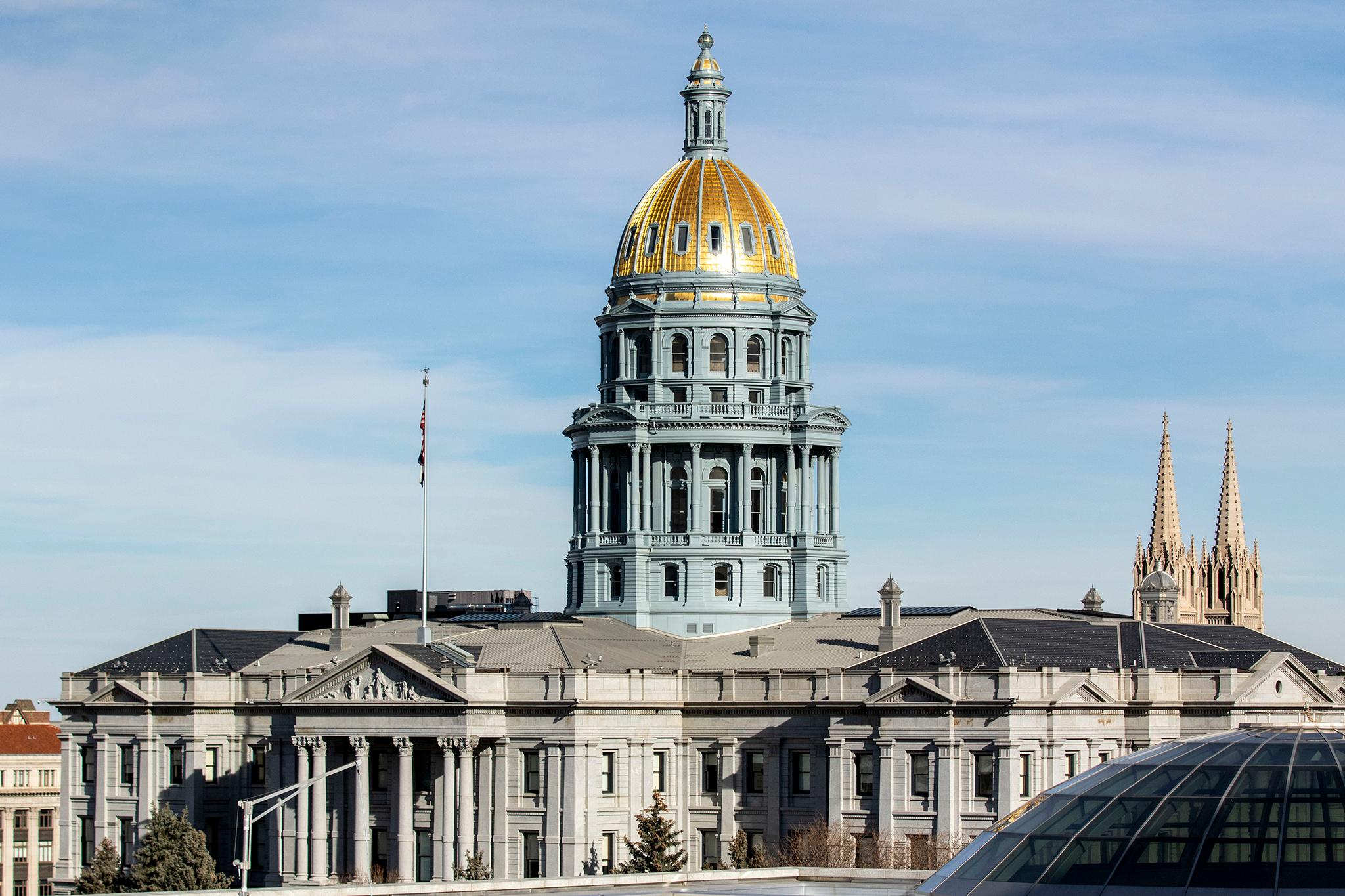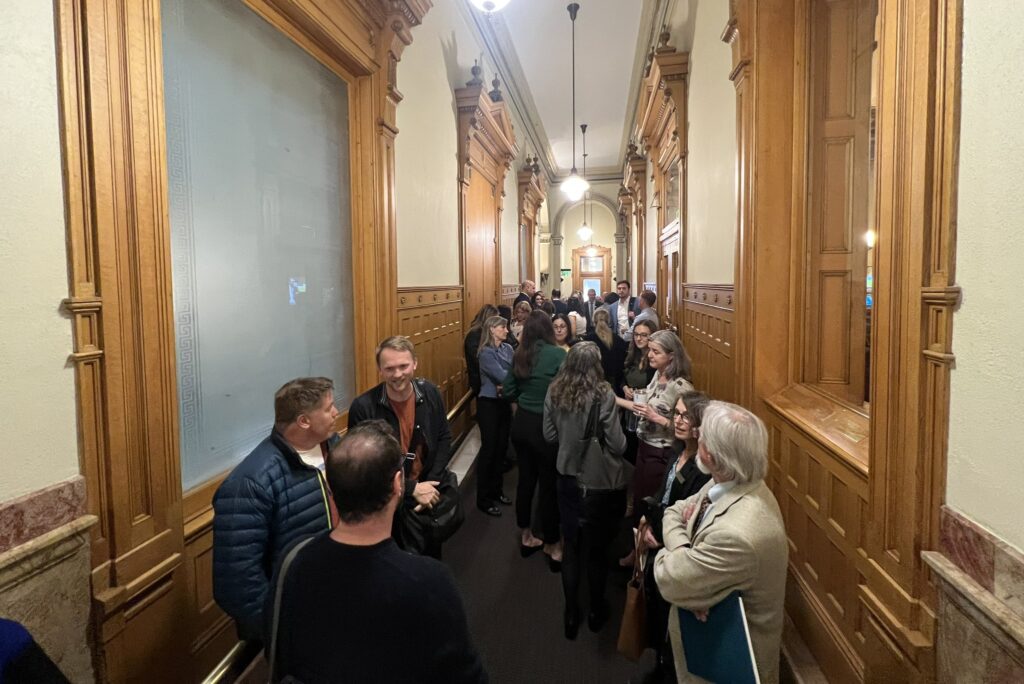
Nearly 300 people were expected to testify at a committee hearing on Thursday about a sweeping bill to change how growth and development are managed in Colorado.
The hearing showed how the proposal has created unusual political divides. In some cases, it has pitted state lawmakers against local leaders in their districts — even ones from the same party.
“We think removing local input from land-use decisions would be a step in the wrong direction for our state,” said Guyleen Castriotta, mayor of the reliably blue city and county of Broomfield.
Meanwhile, the state representative for the area, Democratic Rep. William Lindstedt, has said he generally supports statewide land-use reform.

The proposal would give the state new authority over how land is used and neighborhoods are developed in many cities. So-called “Tier 1” cities on the Front Range and beyond would have to allow denser “middle housing” development in all their residential neighborhoods.
To address some of those local concerns, Senate Majority Leader Dominick Moreno said he was preparing a series of amendments.
“I know firsthand how important the partnership between state and local communities is,” the Commerce City Democrat said. “We will meet many more times as this bill moves through the process.”
Debate was expected to continue late into the day, but the committee didn’t plan to actually take a vote on the policy at the end of it. Instead, Moreno said they would take it slower in order to incorporate feedback.
Changes are in the works
Moreno foreshadowed a series of potential changes, including:
- Lowering the amount of density that cities would have to accept for residential neighborhoods. Instead of opening the door to six-unit residential structures, affected cities would only have to allow four-unit structures.
- Allowing cities to require a certain amount of parking alongside new residential development. In the initial version of the bill, cities could not require any new parking be built alongside the new density.
- Adding new requirements for affordable housing alongside new development.
- Giving mountain resort towns more flexibility to implement their requirements under the bill.
Even with changes like that, state Sen. Barbara Kirkmeyer, a Republican who represents Weld County, believes the bill is wrongfully stripping away power from local governments and their voters.
"I don’t see anywhere in this bill where locals, where the neighborhoods, my constituents and your constituents, would have the ability to have a voice like they do now,” she said.
Republican state Sen. Byron Pelton similarly said that the bill concentrated power in the hands of “unelected bureaucrats.”
Castriotta and other local leaders shared similar concerns, saying that the proposal could overwhelm their existing infrastructure with new, denser developments. But local leaders aren’t unanimous in their opposition. Some, including the mayor of famously growth-averse Boulder, have come out in favor of the bill.
“It’s a crisis and one that goes far beyond the city of Boulder's borders or the border of any one city. It's a regional and statewide issue in scope. And we need all of us to work together if we're going to make progress on solving it,” said Mayor Aaron Brockett at an earlier press conference.

Kevin Bommer, executive director of the Colorado Municipal League, said lawmakers should change course and rewrite the bill to drop all mandates on local governments, and instead replace them with supportive measures — going “from sticks to carrots,” he said.
At the same time, he acknowledged cities should be more aggressive about affordable housing and should address the “NIMBYism” of some of their residents.
“That changes today,” he said, calling for “partnership over preemption.”
Supporters of the bill argued that housing development can’t just be left to local decisions, saying that cities’ refusal to build enough housing has created a shortage.
"Between 2010 and 2019, Colorado added over 720,000 residents, but only about 210,000 additional homes," said Jenny Schuetz, an economist with Brookings Metro, a national think tank focused on urban policy.
“A large contributor to this problem is a lack of coordinated housing plan and a lack of appropriately zoned land,” said Jonathan Cappelli, an affordable housing consultant.
Democrats have concerns, too
Democratic lawmakers on the panel raised their own concerns.
State Sen. Julie Gonzales has signaled that she’s open to pro-density policies. She’s sponsoring a bill that would prevent cities from putting annual caps on new residential permits. But she said she was concerned that when a neighborhood starts redeveloping, it can drive out long-time residents.
"It becomes a drive-until-you-can-afford policy, which often means out of the neighborhoods where folks have generational roots and displacing them further and further,” she said.
Indeed, research has shown that new housing development can drive up property taxes and rents in the immediate area — even while the additional housing supply may ease prices in the broader market.
Moreno pointed out that the bill will require cities to choose from a “menu” of anti-displacement strategies. The details of that menu aren’t yet detailed in the bill, but Moreno said that the amendments would bring some clarity.
Meanwhile, state Sen. Dylan Roberts, a Democrat from mountainous Eagle County, said he was “very nervous” about how greater development would affect the state’s water picture. Supporters counter that dense development is more water-efficient than continuing to build new single-family homes well outside of urban areas.
If it clears the Senate committee, the bill would head next to the full Senate and then to the House.








